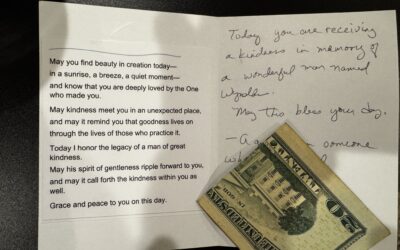Introduction
I lost my reading glasses and could not see clearly, so I headed to the store to buy new glasses. As I walked past a mirror, I saw in the reflection my glasses resting on my head. They had been there during my entire search, but I did not see them. Similarly, the Israelites, as new dwellers in the Promised Land, had a vision problem. Their spiritual perception blurred as they lost sight of their heavenly King and turned to earthly kings. From the time of the Israelites’ arrival into the Promised Land, through the period of judges, dark days, kings, and eventual captivity, they repeatedly lost sight of their heavenly King, looking instead to earthly kings who often led with disregard for God, resulting in the nation’s demise.
Joshua, Jordan, Jericho, and a Jealous God
Led by faith-filled Joshua after the death of Moses, the Israelites witnessed God at work as they entered the Promised Land over parted waters of the Jordan and soon saw Jericho’s walls collapse. Joshua divided the land among the twelve tribes, reminding the new nation of God’s covenant to bless their wholehearted devotion to Him; however, idolatry would result in their destruction, for “He is a holy God; he is a jealous God” (Jos 24:19).
The Israelite’s response to Joshua’s covenant renewals (Jos 8:34-35; 24:22-28) would prove significant as they began life in the Promised Land. The covenant’s blessings and curses resonated, as blessings followed times of righteousness and defeat followed unrighteousness. After Joshua’s death, the Israelites lost their way as they flirted with foreign gods (Judg 2:1-3). As a result of their idolatry, the next generation of Israelites “neither knew the Lord or what he had done for Israel” (Judg 2:10).
Judges and Dark Days
God punished the Israelites for their idolatry and accompanying sins. The Israelites cried out to God for deliverance from oppression, and God, in His mercy, continually gave them deliverers (judges). The cycle repeated, as they once again forgot their heavenly King. Some of the judges (such as Deborah and Gideon) were faithful to God, but many did evil in His sight. Beginning in Judges 16, the judges lost their effectiveness, failing to bring the nation back to God, thus ushering Israel into a dark period.
The stories in Judges 17-21 could be material for an “R rated” soap opera, as they tell of war, rape, brutality, idolatry, and all kinds of evil. The message in Judges 17:6, “In those days there was no king in Israel” is repeated in chapters 18:1, 19:1, and 21:25. This message had great significance, as the Israelites already had a heavenly King, yet did not recognize Him as such. They were spiritually blind, seeing through worldly eyes.
The Plea for a King
God heard the prayers of Hannah for a son (1 Sam 1:19-20). She dedicated him to the Lord, and he served under Eli, the priest. Samuel became a God-fearing man and a prophet in Israel. Knowing neighboring nations had kings, the elders of Israel asked Samuel to appoint them a king (1 Sam 8:5). This displeased Samuel, but God allowed it, telling Samuel, “…it is not you they have rejected, but they have rejected me as their king” (1 Sam 8:7). Samuel elaborated on the message God told him concerning kingship, warning the people about “what the king who will reign over them will claim as his rights” (1 Sam 8:11). Describing what would happen as a result of appointing kings, Samuel further warned, “When that day comes, you will cry out for relief from the king you have chosen, but the Lord will not answer you in that day” (1 Sam 8:18). Nonetheless, Saul was anointed the first king over Israel, replacing the nation’s theocracy with a new monarchy. Saul failed to honor his heavenly King, like many of the kings who followed. The king’s power often created a culture of entitlement and greed, leading the people further away from their heavenly King.
The King Culture
For the next several centuries, kings ruled a united, then divided Israel. A few, beginning with David, followed the ways of God, but most kings led the people into idolatry and evil. This resulted in a divided kingdom followed by Assyrian and Babylonian captivity. Even King David, whom God called the man after his own heart (1 Sam 13:14), briefly succumbed to a “king culture” of entitlement and greed (1 Sam 8:10-18). Instead of going and giving, he sent for Bathsheba and took her for himself, later having her husband killed (2 Sam 11:2-4, 14-15).
Throughout the monarchies, God’s prophets warned the kings and the people to turn to their heavenly King; however, the warnings were seldom heeded. Had the Israelites recognized God as their true King and served Him wholeheartedly, they would have experienced continued blessings and victory, instead of defeats and eventual exile.
Conclusion
From the Israelites’ entrance into the Promised Land, throughout the period of the judges, the dark times, the anointing of kings, and the accompanying king culture, the Israelites repeatedly viewed life through worldly, rather than spiritual eyes. Their definition of national success often stemmed from pride and conquest, rather than humility and service. Both judges’ and kings’ hearts were fickle, often enticed by entitlement and idolatry. When a righteous leader ruled, the people enjoyed times of blessing. When an ungodly ruler led, the people’s hearts went astray, because they did not keep the ever-present heavenly King on the throne of their hearts. This led to their defeat. God, alone, is worthy of all honor and praise, and only He can offer lasting blessings and eternal victory.



0 Comments